COVID-19 Leaves ‘Green’ Impact On Local Environment
As people self-isolate at home, feel-good stories come from Italy, China and the U.S. showcasing how Earth’s break from humans during the COVID-19 pandemic has improved the environment, an impact also witnessed by the local community.
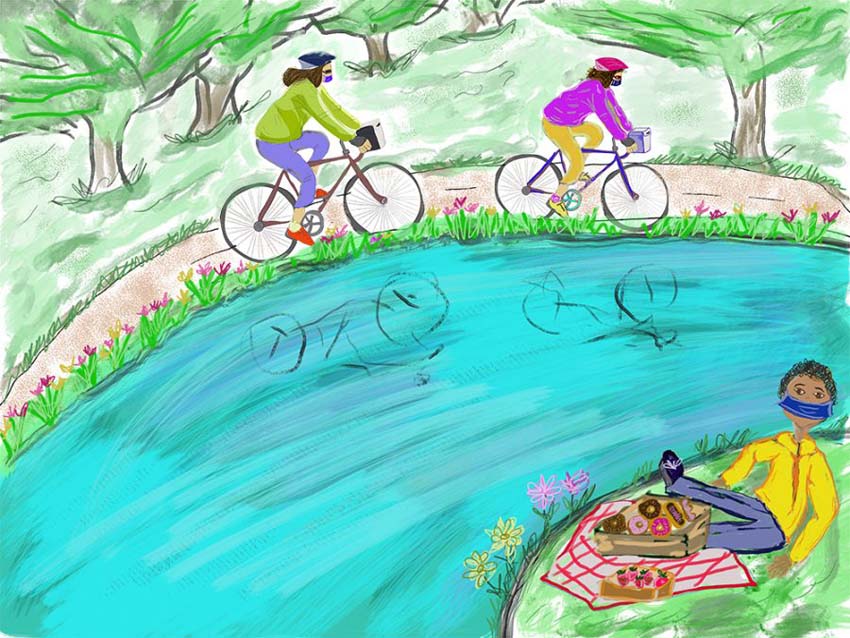
Photo: Afaaf Alnahas
As people self-isolate at home, feel-good stories come from Italy, China and the U.S. showcasing how Earth’s break from humans during the COVID-19 pandemic has improved the environment, an impact also witnessed by the local community.
An analysis from Carbon Brief revealed carbon emission levels in China decreased 25% over a four-week period. A similar study conducted at Columbia University revealed carbon monoxide emission levels in New York City dropped 50% below average during the city’s first week of shutdown due to vehicle transportation coming to a halt.
Amy Kirwin, community enhancement initiative manager for the City of San Marcos and manager of Keep San Marcos Beautiful (KSMB), noticed similar declines in traffic and vehicle usage in San Marcos.
“I have seen more people walking and biking than I have in the last 27 years that I’ve lived here,” Kirwin said.
Kirwin said she is hopeful COVID-19 will encourage individuals to adapt to a new normal, one where social distancing promotes daily green actions such as walking and biking.
“It will be a new normal and we will still have to do social distancing, so even students who were packed on a bus to go up to campus, that can’t happen anymore,” Kirwin said.
Kirwin, who also manages the city’s trash, recycling and composting program, said the amount of litter collected from I-35 and other major corridors has decreased, most likely due to the lack of traffic in those areas correlating with stay-at-home orders in place during April and May.
In addition to educational initiatives, KSMB also hosts monthly clean-ups focusing on litter pickup and graffiti removal to encourage residents to participate in the upkeep of their community. After two months of canceled events and cleanups, KSMB hosted a hotspot clean-up June 6 near the creek at Sessom Natural Area off Chestnut Street.
A total of seven volunteers participated and ended up collecting six bags worth of trash and two of recycling. Kirwin said this amount of litter is lower than anticipated, especially for a 14-acre park.
Dr. Robert Mace, executive director of The Meadows Center for Water and the Environment, said he has also noticed a decrease in the amount of litter found around San Marcos.
As for his community in north Austin, Mace said he makes an effort to walk around his neighborhood and pick up litter at least once a week. Over the last several months, Mace noticed an increase in the littering of rubber gloves and masks.
“Rubber gloves are pretty resilient in the environment so those are gonna be around for quite a while, and of course, that can cause issues with ecosystems,” Mace said.
Similarly, medical-grade masks are composed of several harmful materials, such as polypropylene, aluminum and elastic bands. All of these parts are unrecyclable and can get caught on tree branches or be misidentified as food by animals when disposed of improperly.
The recent re-opening of states and new safety protocols can also bring forth new threats to environmental efforts. When it comes to restaurants and to-go orders, Mace emphasized it is important to choose biodegradable packaging instead of paper products.
Mace said a lot of paper products are lined with a plastic film that helps keep grease from seeping through. The plastic film cannot be broken down through the recycling process.
To encourage restaurants to implement more sustainable practices, Mace recommends consumers avoid restaurants using harmful packaging materials.
“When you are ordering take-out, take notice of who is using styrofoam or not, and perhaps demonstrate a preference towards those who are not,” Mace said.
Mike Behrend, executive chef and co-owner of Earth Burger, said not only does Earth Burger provide plant-based meals, but its french fry containers, burger wrappings, bags and bowls are all made out of biodegradable materials.
Earth Burger, which opened its San Marcos location in 2018, quickly gained popularity for being the only plant-based fast food restaurant in the area.
Behrend believes a big part of Earth Burger’s success is that it cares about its impact on the environment, even if it means spending more on biodegradable packaging as opposed to cheaper styrofoam or plastic.
“All of these things are readily available now through distributors, so if people are not using them, it’s about money and not about accessibility,” Behrend said. “You can buy these at Cisco or US Foods or any of the big distributors.”
Although the COVID-19 pandemic might have changed daily routines around the world, there is hope that changes made throughout this time period will have beneficial impacts in the near future.
-

Moldovan youth is more than ready to join the EU
2024-04-18 -
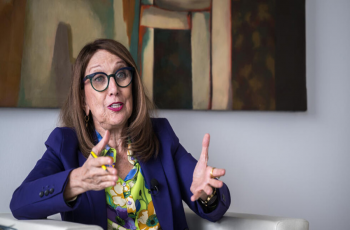
UN says solutions exist to rapidly ease debt burden of poor nations
2024-04-18 -

'Human-induced' climate change behind deadly Sahel heatwave: study
2024-04-18 -
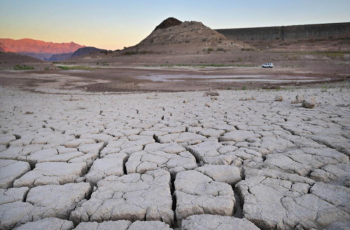
Climate impacts set to cut 2050 global GDP by nearly a fifth
2024-04-18 -
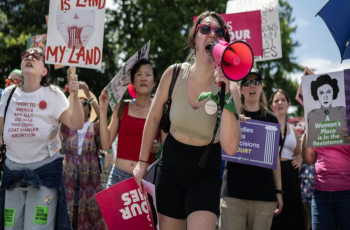
US sterilizations spiked after national right to abortion overturned: study
2024-04-13 -

Future of Africa's flamingos threatened by rising lakes: study
2024-04-13 -
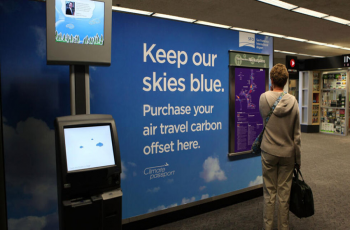
Corporate climate pledge weakened by carbon offsets move
2024-04-11 -

Humanity lost 'moral compass' on Gaza: top UN official
2024-04-10 -

No.1 Scheffler says patience and trust are secrets to success
2024-04-10 -
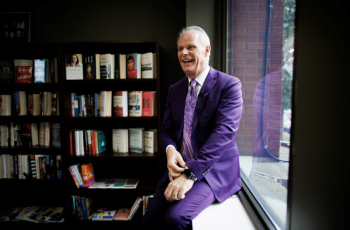
From homeless addict to city chief: the unusual journey of Canadian mayor
2024-04-10
